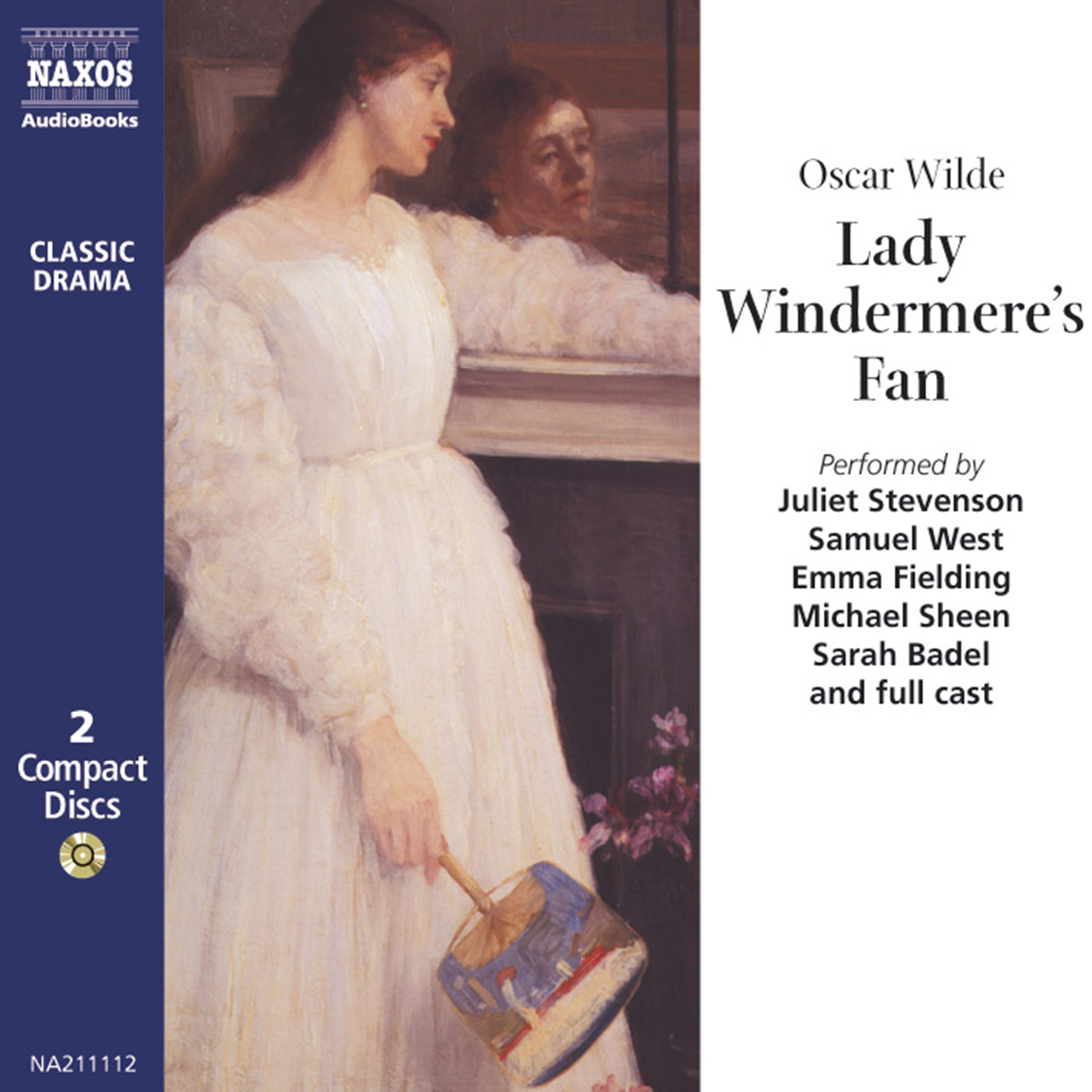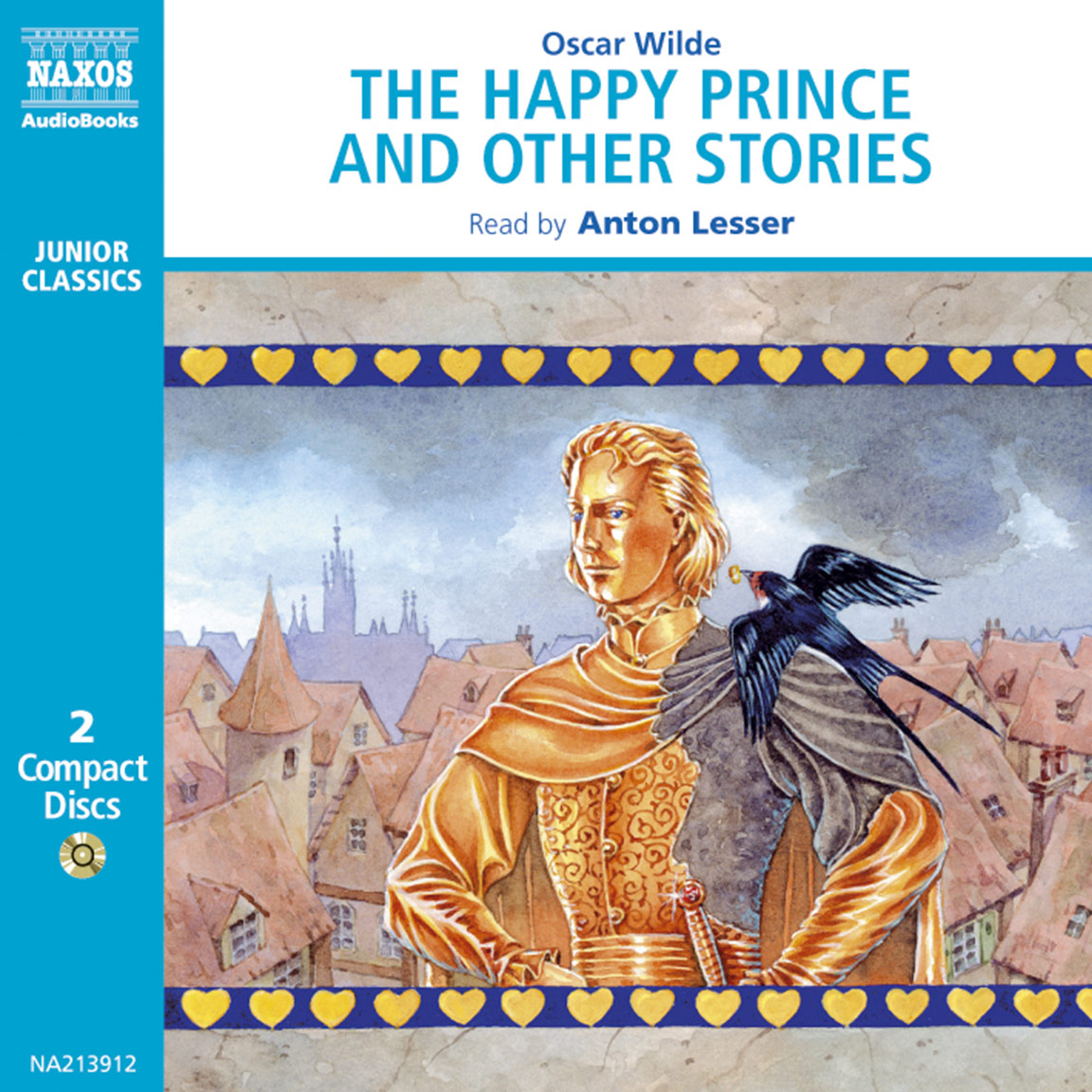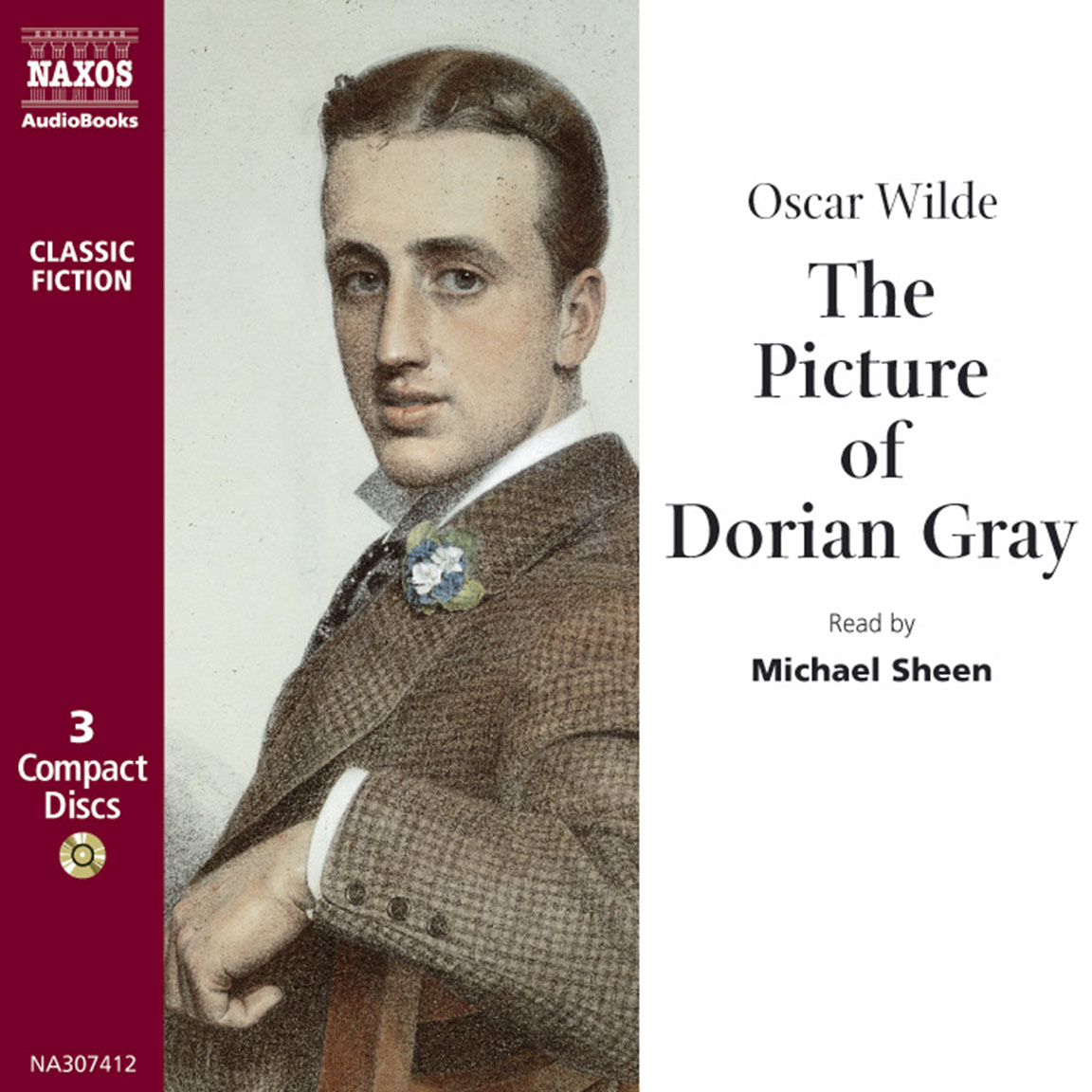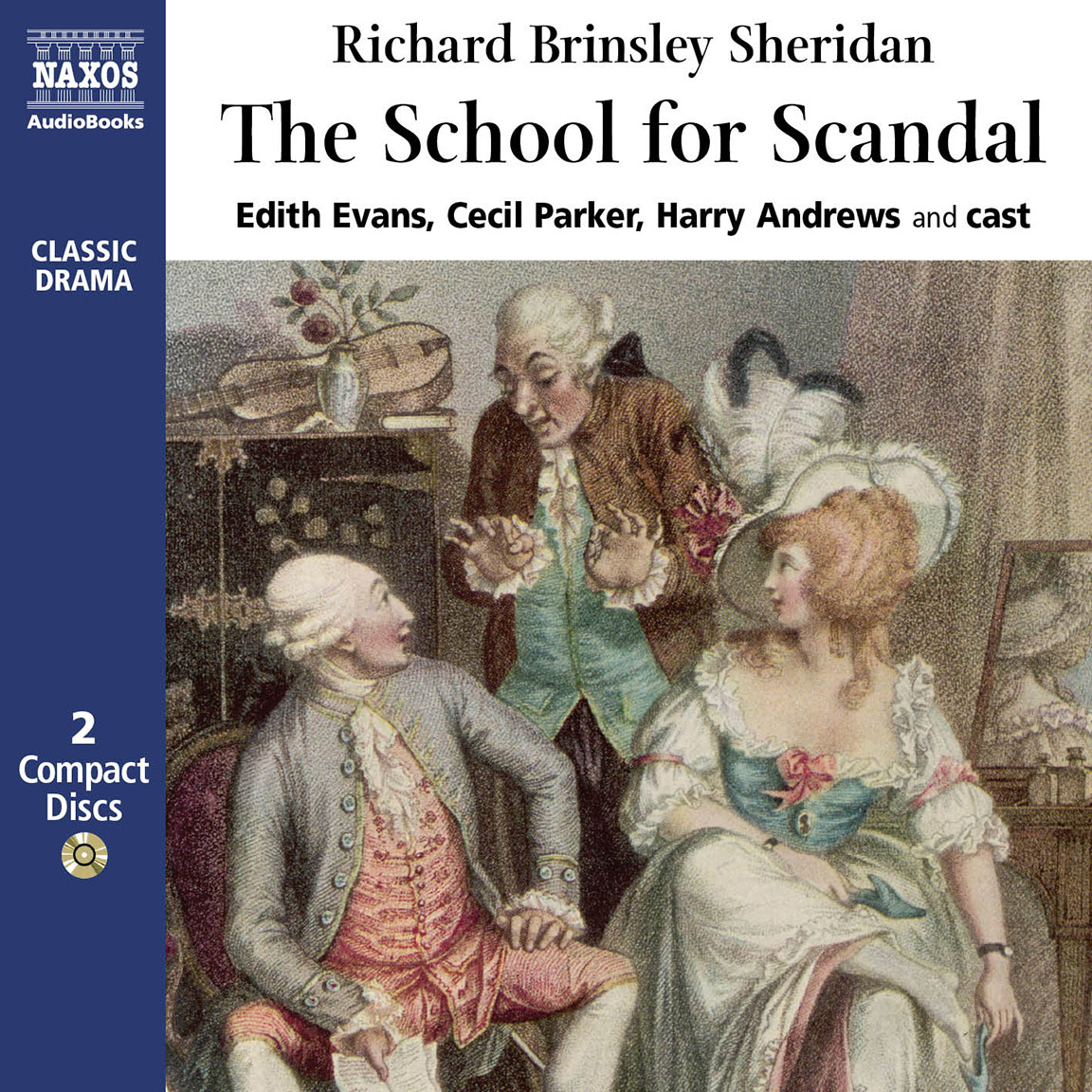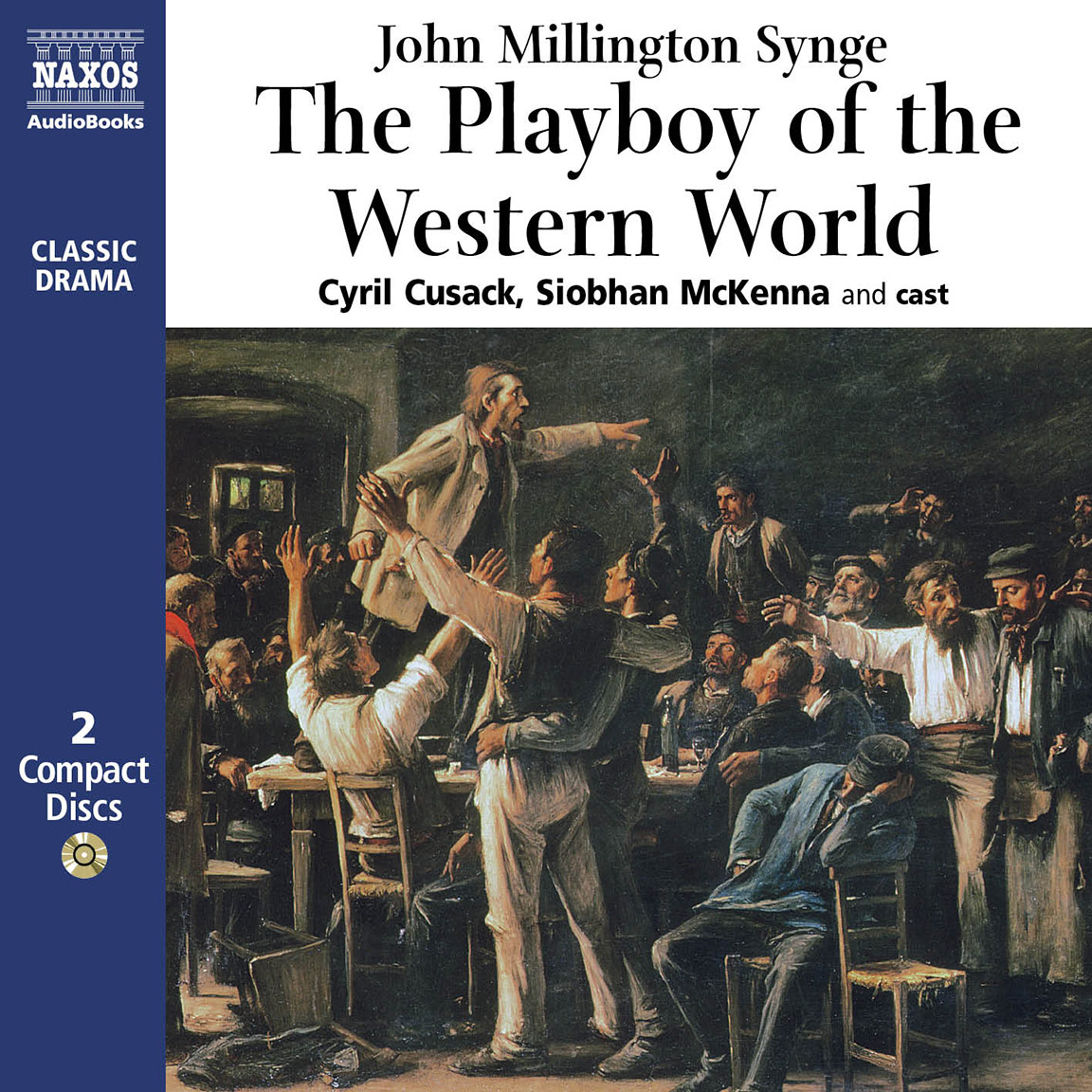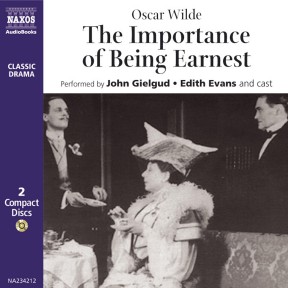
Audio Sample
Oscar Wilde
The Importance of Being Earnest
Performed by Sir John Gielgud, Edith Evans, Ronald Ward, David Horne, Roger Delgado, John Turnbull, Gwen Ffrangcon-Davies, Angela Baddeley & Betty Hardy
unabridged
This is one of the great recordings of a great play. John Gielgud stars as Ernest and Edith Evans gives her indomitable performance as Lady Bracknell in this classic radio recording from 1951. Performance styles may have changed, but this is an unmatched production bearing all the hallmarks of outstanding audio drama featuring some of the finest actors of the twentieth century. Also included are two collections of poetry readings by John Gielgud and Edith Evans.

-
Running Time: 1 h 50 m
More product details
Digital ISBN: 978-962-954-701-1 Cat. no.: NA234212 Download size: 26 MB Edited by: Dan King BISAC: DRA003000 Released: December 2004 -
Listen to this title at Audible.com↗Listen to this title at the Naxos Spoken Word Library↗
Due to copyright, this title is not currently available in your region.
You May Also Enjoy
Cast
- John Gielgud
- John Worthing, J.P.
- Ronald Ward
- Algernon Moncrieff
- David Horne
- Rev. Canon Chasuble, D.D.
- Roger Delgado
- Merriman, Butler
- John Turnbull
- Lane, Manservant
- Edith Evans
- Lady Bracknell
- Gwen Ffrangcon-Davies
- Hon. Gwendolen Fairfax
- Angela Baddeley
- Cecily Cardew
- Betty Hardy
- Miss Prism, Governess
Reviews
Winner of AudioFile Earphones Award
‘I never travel without my diary,’ says the sheltered and beautiful young maiden. ‘One should always have something sensational to read on the train.’ With this play, which premiered in 1895, Oscar Wilde established a uniquely British style of verbal stage humor. One could say with justification that it is one of the funniest plays in the English language. Or, because plays are (in a sense) rewritten every time they’re performed, potentially so. The radio production heard here realises that potential in spades. A young John Gielgud takes the lead, while Dame Edith Evans steals the show as the imperious Lady Bracknell, a role for which she was famous in her lifetime. That today’s American listeners won’t recognise the names of the other cast members doesn’t mean they’re any less capable. The entire ensemble shines. The timing! The gusto! The sense of fun! This reviewer has heard every audio recording of Earnest; this is by far the best of them all.
Y.R., AudioFile
Booklet Notes
It is generally agreed that The Importance of Being Earnest is the most perfect and sublimely funny play in the English language. Wilde began to write his Trivial Comedy for Serious People in the autumn of 1894, while on holiday with his family at Worthing. The play was originally in four acts, but George Alexander, the actor–manager of the St. James’s Theatre, thought it too long, so acts two and three were amalgamated, and a scene in act two, in which a solicitor arrives at the country house, was cut completely. The play opened on 14 February 1895 and was a huge and instant success. Alexander, as was his wont, had cast the play brilliantly, and Max Beerbohm immediately recognised it as a masterpiece. Exactly a fortnight after the triumphant first night, the Marquess of Queensbury left his famous message at the Albemarle Club, and Wilde’s glittering career was essentially and inexorably cast into the ruins from which it never recovered in his lifetime.
Meanwhile, the play ran with great success, and it was not until Wilde’s first arrest that his name was deleted from the bills outside the theatre, as it was from the facade of the Theatre Royal, Haymarket where Wilde’s An Ideal Husband was also running successfully. Even when the play was published later that year Wilde’s name was omitted, and the title page read ‘By the author of Lady Windermere’s Fan’.
John Gielgud’s long association with the play began when he was only seventeen, before he had even begun his training at RADA. On 5 January 1922 he directed and played John Worthing for a single performance at the King George’s Hall of the YMCA near Tottenham Court Road. Surprisingly, he and his amateur friends raised £30 4s 7d for the Old Vic Fund.
Val and John were so delighted that they took me out to lunch
On 7 July 1930 at the Lyric Hammersmith, he played the part again, directed by Nigel Playfair, in the gap between his two triumphant seasons at the Old Vic. The play was produced in black and white in the style of Aubrey Beardsley, and its 104 performances were only brought to an abrupt end by the necessity for him to return to the Vic.
On 31 January 1939, while he was playing in the long-running Dear Octopus at the Globe Theatre, he directed and played John Worthing for eight special matinées, with Ronald Ward as Algernon (as on this recording), Joyce Carey and Angela Baddeley as Gwendolen and Cecily, Margaret Rutherford as Miss Prism, and, most essentially, Edith Evans as Lady Bracknell.
Gielgud always considered Edith Evans to be the greatest English actress of her time, and so perfect was their partnership in these two roles that he never played it in London without her – only for his New York production in 1947 did Margaret Rutherford move up from Miss Prism to Lady Bracknell.
When he and Evans first read the ‘handbag’ scene together, he remembered her saying immediately, ‘I know that kind of woman, she rings the bell and asks you to put another lump of coal on.’ In a brilliant essay on the play, he analysed the character, ‘Lady Bracknell is not called Augusta for nothing. She is never put out or surprised. She is never angry. But she is frequently disapproving and almost always annihilating. She moves slowly and seldom. She is beautifully dressed and carries herself superbly. Her every accessory – veil, gloves, parasol, chatelaine, bag and shoes – must be worn with a perfection of detail that has become second nature to her. It is impossible to conceive her (or her daughter either) except en grande tenue.’ This exactly describes Evans’s Lady Bracknell, and if you add to that the most authoritative comic timing, you can, perhaps, get an inkling of the definitive nature of her lustrous performance.
Gielgud’s John Worthing was its match in perfection of detail. In contrast to Algernon’s debonair manner and easy charm, his character was extremely reserved and insecure (except in his scenes with Gwendolen), as though he had always to watch every word that he spoke in case he gave himself away, though, at the same time, trying to give the impression of a man totally at ease with himself. The high moral tone he adopts towards his friend’s frivolity comes, of course, from the insecurity bred by his acute embarrassment about his origins. Though he has so far managed to conceal his secret from the world, he knows that he has to disclose it to Lady Bracknell, as he is fully aware of the dire consequences that would ensue if he were ever found to have deliberately concealed it from her. This complicated subtext was completely integrated into his performance – never insisted upon, but there all the same. The effect was almost Chekhovian in its depth, and, for that reason, was quite exquisitely funny – a perfect illustration of the truth of David Garrick’s celebrated remark that ‘Comedy is a serious business’.
I had the greatest possible luck in having the opportunity to see the last performance of the part he gave in London. On 11 April 1946 he revived the production for a special Royal matinée in aid of the King George’s Pension Fund for Actors at the Theatre Royal, Haymarket, which was attended by King George V and Queen Mary. It hardly needs to be said that I was not disappointed!
Only seven years later, I was rehearsing a radio play directed by John Gielgud’s brother, Val Gielgud. The cast was given the morning of 27 October 1954 off, as Val was due to record the world premiere of the ‘lost’ scene from ‘The Importance of Being Earnest’ in a half-hour programme to be broadcast that same night. It was introduced by the Wilde expert, H. Montgomery Hyde, and the scene concerned the arrival of a solicitor who had come to arrest Ernest Worthing for non- payment of his supper bills at the Savoy. The roles of the two young men were to be played by brother John and Rex Harrison. At eleven, I was telephoned by Val who commanded my immediate attendance at the BBC because Rex Harrison hadn’t turned up, and he wanted me to play Algernon in his stead. I arrived just fifteen minutes before the recording was due to begin, had a marked script thrust into my hands, and did a quick rehearsal without having read a single word of it. I then had just three minutes to read my lines through again to find out what they meant, and the recording was made without fault. Val and John were so delighted that they took me out to lunch. There I learnt that, as the recording was about to begin, Rex Harrison finally arrived, but Val had posted his secretary outside the studio and he was sent away in disgrace. Unfortunately the recording was never repeated after its initial transmission and was not preserved in the BBC Sound Archive, so it is presumed to be forever lost.
The version of the play presented here was produced by the BBC in 1952, and was almost certainly taken from a live transmission, as almost all radio plays were broadcast live in those days. The result is that you have a performance that is vastly superior to a complete version that Gielgud and Evans made for Columbia LPs which was ‘rehearse-recorded’ – that is to say, each scene was rehearsed separately and then taped, thus losing the momentum and the overall shape of a live performance. I can assure you that the Columbia set only reflects very poorly the brilliance of what I had seen at the Haymarket matinée, whereas the broadcast performance exactly mirrors it. Tyrone Guthrie once wrote about Gielgud’s production, ‘It established the high-water mark in the production of artificial comedy in our epoch.’
Notes by Richard Bebb
